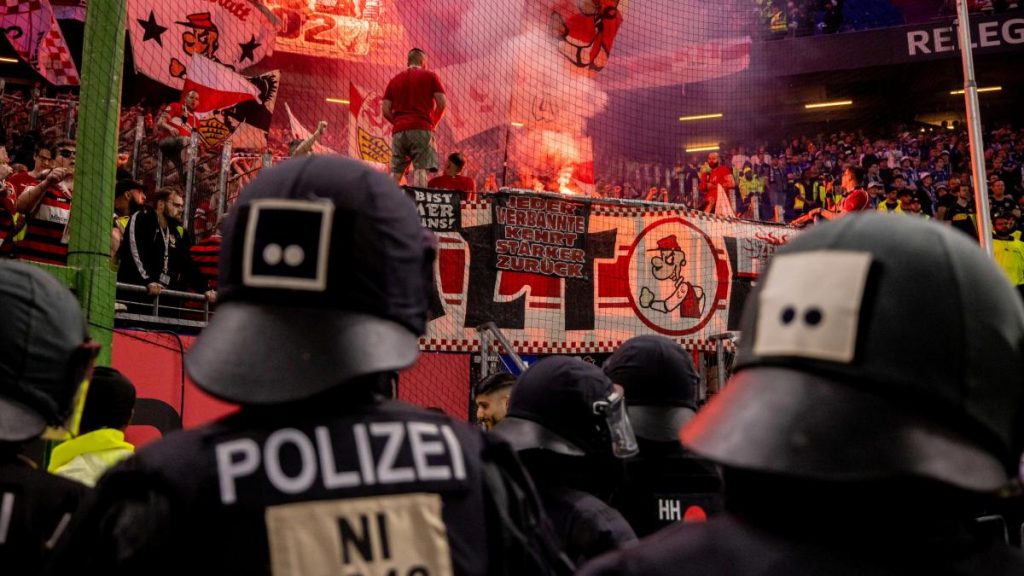The Federal Constitutional Court is deciding on a longstanding dispute regarding whether the German Football League should contribute to the costs of police operations against violent football fans. Bremen, along with other states, believes that the league should share the burden of the roughly 100 million euros per season that are spent on police interventions during Bundesliga matches. The initial controversy dates back to 2015, when Bremen presented a bill to the DFL for police services provided during a match between Werder Bremen and Hamburger SV. Despite a reduction in the bill amount, the case has been ongoing, with various courts ruling in favor of Bremen. The DFL, however, argues that this cost-sharing model is unconstitutional. The final judgment from the Federal Constitutional Court is expected in a few months.
The central issue at the three-and-a-half-hour hearing in Karlsruhe was whether taxpayers should continue to bear the full costs of police operations surrounding the 616 matches in the first and second Bundesliga each season, or if the DFL should contribute to the additional expenses incurred during high-risk games. Bremen’s proposal is for the league to cover a portion of the costs related to matches with a history of violence and disturbances, arguing that the financial burden on states is too high. If the court rules in favor of Bremen, it could set a precedent for other states to also seek financial contributions from the DFL for police interventions at football matches.
The DFL, represented by jurist Wolfgang Ewer, argues that the responsibility for public safety around stadiums lies with the state and not the football league or its clubs. However, Bremen’s representative, Joachim Wieland, countered by highlighting the benefit that clubs derive from the police protection, as a secure environment attracts more spectators and revenue. The outcome of the court case is eagerly awaited by other states, such as Rheinland-Pfalz and Hamburg, which have expressed interest in pursuing a similar cost-sharing model with the DFL. Niedersachsen’s Minister of the Interior, Daniela Behrens, hinted at the possibility of implementing such measures if deemed necessary, although the ultimate goal should be the prevention of violence at football matches.
Bayern’s Minister of the Interior, Joachim Herrmann, shares a similar perspective, emphasizing the importance of holding violent individuals accountable and urging football clubs to enhance security measures within stadiums. He believes that by distancing themselves from troublemakers and excluding persistent offenders, clubs can reduce the need for extensive police presence. Hessen’s Minister of the Interior, Roman Poseck, does not see the need for additional financial burdens on clubs but expects them to take responsibility for security measures and address issues of violence and pyrotechnics. Overall, the response from state officials varies, with some advocating for shared financial responsibility and others prioritizing preventive measures to reduce police presence at football matches.


